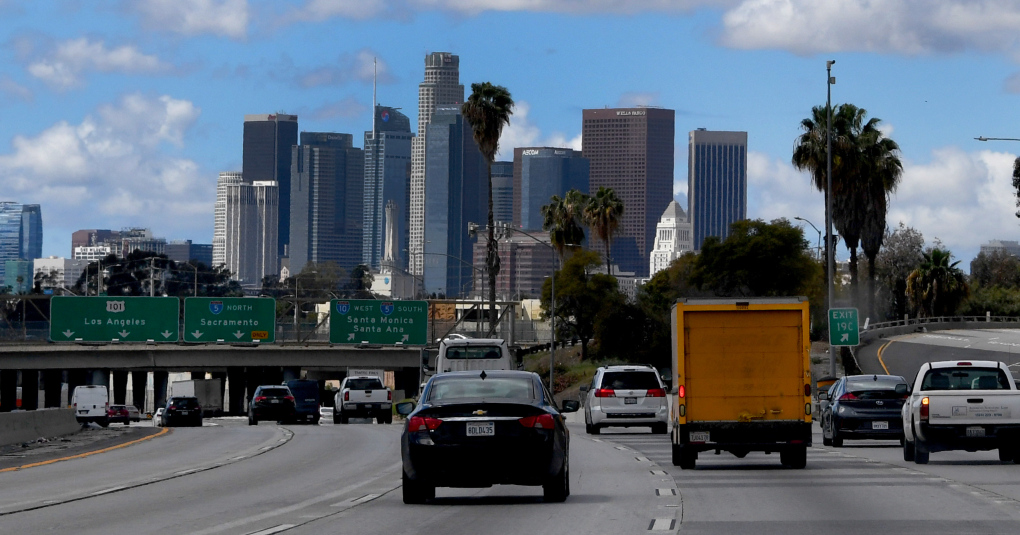They include areas with high traffic congestion, including the I-10 freeway corridor between downtown L.A. and the west side, and routes between the San Fernando Valley and the LA basin.
By ELIZABETH CHOU | Daily News
Metro, the regional transportation agency, is exploring four locations — mostly located in the city of Los Angeles — where tolls could be used during peak hours. The strategy: Reduce the time people spend stuck in traffic.
The concept, to be scrutinized during a two-year feasibility study, is known as “congestion pricing.” Among the thoroughfares being studied are roads that cross the Santa Monica Mountains, commonly used by commuters to travel between the San Fernando Valley and the Los Angeles basin.
In one version of this concept, tolls would be targeted to the wide swath of freeways and roads between the I-405 and the I-5. A narrower section of this Santa Monica Mountains concept would include setting tolls on just the roads between the US-101 and the I-5, affecting people traveling into the downtown L.A. area.
The next two concepts being studied focus on the downtown L.A. area, which planners noted is especially dense in existing public transit that could serve as alternatives. One concept calls for tolls proposed along the freeways that go into and through the area, and the other would set a toll for entering the entire downtown L.A. area.
The fourth concept would target the congestion pricing along the route between downtown Los Angeles and the west side, primarily along the I-10.
Planners said these four areas were identified as enduring many hours of congestion, while still offering alternate ways of travel, such as via public transit — either existing or planned.
They contend that this idea has been used in other cities — such as London, Seattle and Stockholm — with success, and should be considered as a strategy for dealing with congestion here.
Meanwhile, low-income assistance programs could be put in place to address hardships faced by some commuters who may not be able to easily afford the tolls, they said.
Metro is holding a series of public meetings on these concepts, including on Tuesday, Feb. 16, from 11:30 a.m. to 1 p.m. The registration is here. Another meeting is set for Saturday, Feb. 27, from 1 p.m. until 2:30 p.m. To register, go here.
Once the studies on the four concepts are completed, planners will be presented them to the Metro board, which will decide on a “preferred” concept that could serve as a “pilot” site to test out tolling in the Los Angeles area. That would be followed by a period of designing the implementation plan, with the Metro board anticipated to vote on that plan in the spring of 2022.
Planners estimate that if the program gains the public and the Metro board’s support, it could be launched as soon as 2025.
